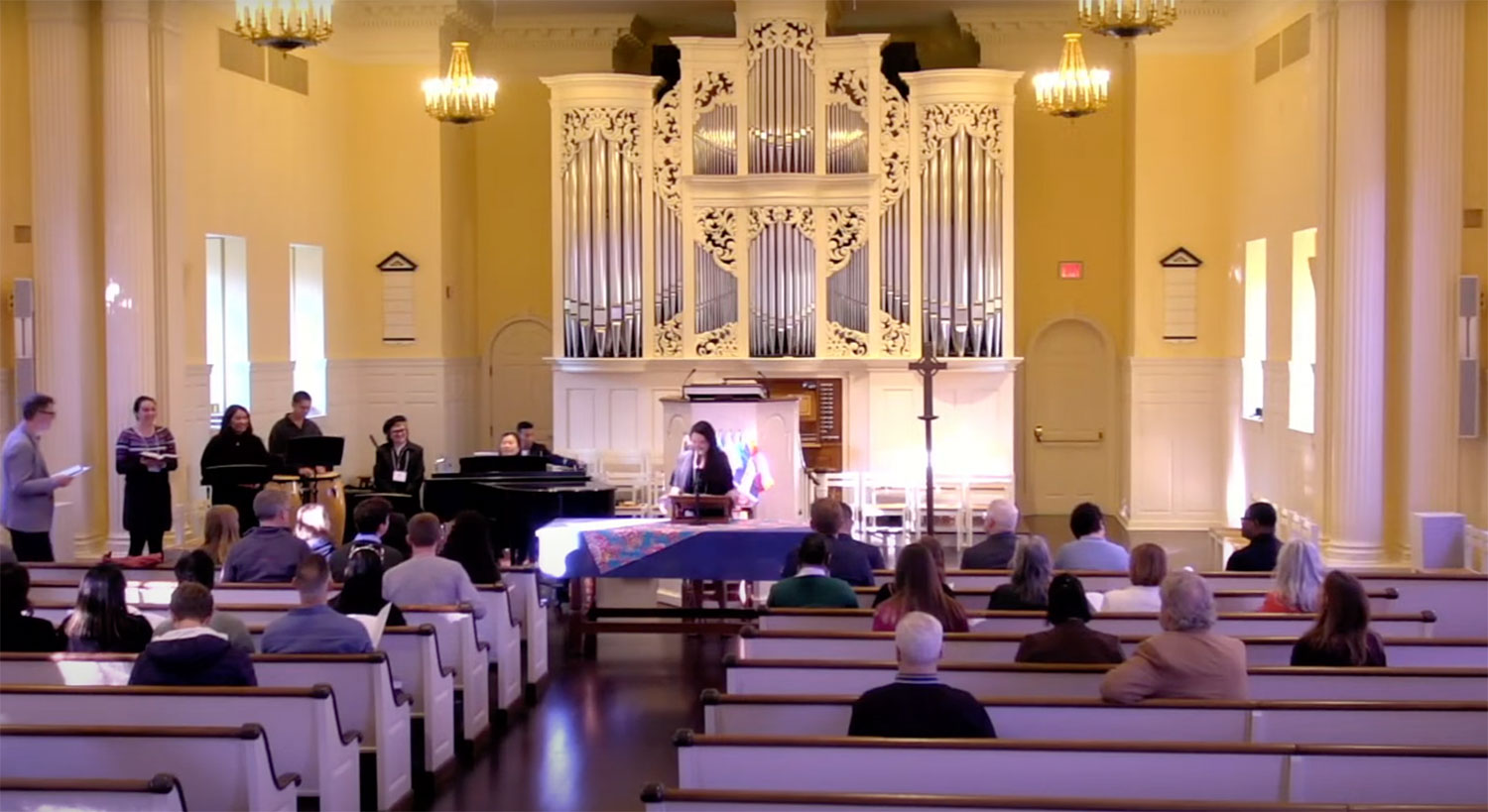(RNS) — Over the last year and a half, surveys have tracked a significant rise in support for Christian nationalism among U.S. Hispanic Protestants, even as support for the ideology has remained fairly stable among other racial and ethnic Christian groups.
Among Hispanic Protestants, strong and moderate support for a group of ideas that include “U.S. laws should be based on Christian values” and “God has called Christians to exercise dominion over all areas of American society” have inched up from 43% in 2022 to 55% in 2023 and 59% in June 2024, according to Public Religion Research Institute surveys. That brings Hispanic Protestant support for Christian nationalism close to white evangelical support.
Hispanic Protestants make up under a quarter of U.S. Hispanics (23% in PRRI’s latest census). Among Hispanic Catholics, a larger group that makes up about half (48%) of U.S. Hispanics, support for Christian nationalism remains low, with less than a quarter (22%) expressing strong or moderate support.
While academics have long studied a version of U.S. Christian nationalism that privileges white, native-born Christians, a group of scholars gathered at Princeton Theological Seminary on Monday (Oct. 14) to consider the rise in U.S. Hispanic Christian nationalism. Scholars at the evening symposium, part of the Herencia (“Heritage”) Lectures, said that U.S. Hispanic Protestants participate in a strand of Christian nationalism connected to transnational apostolic networks that seek to advance Christian power in nations across the globe.
Matthew Taylor, a scholar at The Institute for Jewish, Christian and Muslim Studies in Baltimore, said that apostolic and prophetic Christian nationalists believe they must exert power to convert and Christianize whole nations.
These apostolic and prophetic circles have a “natural sense of alliance” with authoritarian political leaders because they have “at least in their own mind, moved beyond democracy in the governance of their own coalition” and instead “installed these charismatic individuals, the apostles and prophets, as the quasi-authoritarian leaders within their networks,” Taylor said.
Prominent U.S. Latino Protestant pastors, including some who have advised former President Donald Trump and who mobilized Christians for the insurrection on Jan. 6, 2021, are involved with these loose international networks within what is called either the apostolic and prophetic movement or the Five-Fold Ministry movement, explained Taylor. His new book, “The Violent Take It by Force,” explores the charismatic Christians who have supported Trump and their role on Jan. 6.
The movement, where Pentecostal theology and nondenominational governance are combined, extends across continents, and different leaders voluntarily submit to the spiritual authority of other leaders, sometimes in other countries.
“You have to be part of a chain of authority in order for your prophetic acts to have authority in the spiritual world,” Raimundo Barreto, Jr., associate professor of world Christianity at Princeton Theological Seminary, explained to RNS after the event.

Before the lecture, attendees gathered for a lively worship service, which featured readings and music in Spanish and Portuguese. Video Screengrab
In contrast to the model of sending missionaries, “apostolic networks transcend national borders, so that ideas and leaders and resources flow in every direction,” Taylor said.
João Chaves, assistant professor of the history of religion in the Américas at Baylor University in Waco, Texas, said that “the overlaps in the transnational influences” on the Christian far right have been very clear as he and Barreto write a book about the political movement in Brazil and its international connections.
Chaves and Barreto have followed the political influence of the growing population of Pentecostals in Brazil. Chaves said that in the 2022 elections, more than 500 candidates for political office used classic evangelical terms, like missionary, pastor, reverend and bishop, as they campaigned.
Both scholars emphasized the links between the U.S. and Brazil, with Barreto referencing sociologist David Hess’ description that the two countries are “slightly distorted mirror-images of each other.”
Chaves noted that former Brazilian President Jair Bolsonaro’s son, Eduardo, was in Washington, D.C., just before the Jan. 6 insurrection. Two years later, on Jan. 8, 2023, Bolsonaro’s supporters, including many evangelicals, invaded government buildings and called for a military coup following their leader’s defeat in the 2022 Brazilian general election to Luiz Inácio Lula da Silva.
Several speakers noted that Zionism is a common feature in worship and politics among charismatic Pentecostals who also advance Christian nationalism. Chaves said, “When Trump was trying to move the embassy (to Jerusalem), you could see them pushing in Brazil also.”
Barreto said that, while televangelist Paula White has connected Trump to apostolic networks, Silas Malafaia, a Brazilian Pentecostal televangelist, has played the same role for Bolsonaro, a Catholic who appeals to Brazil’s right-wing evangelicals.
Malafaia “is not a thinking head of that movement,” Barreto said in his lecture. “He is repeating the same discourse that we are hearing from other apostolic voices,” including that “Brazil belongs to Jesus Christ” and that cultural Marxism, feminism, abortion, the LGBTQ+ community and the whole left are enemies to be fought, Barreto said.
The rise of Christian nationalism in Brazil is pushing some people out of the church, but others are forming a resistance, Barreto told RNS.
Vozes Marias, or Maria Voices and Novas Narrativas Evangélicas, or New Evangelical Narratives, are among the groups led by young people “from the peripheries, the favelas,” that have both stepped up, Barreto said.
Miranda Zapor Cruz, a professor of historical theology at Indiana Wesleyan University, says the rise of Hispanic Christian nationalism is replaying some debates about new prophecy in the early church.
“Those who are part of these movements affirm a version of modern-day Gnosticism and Montanism that rejects the authority of creedal Christianity in favor of new revelation that has authority,” Cruz said.
(This story was reported with support from the Stiefel Freethought Foundation.)

